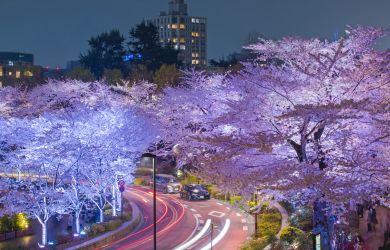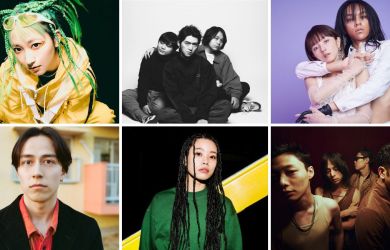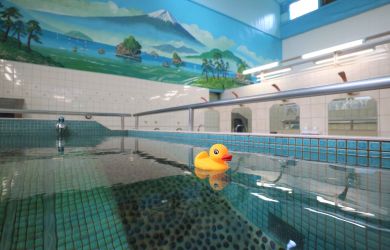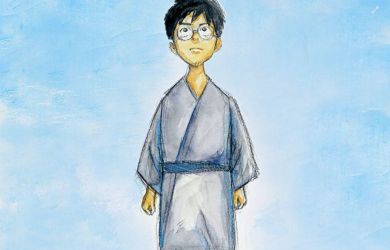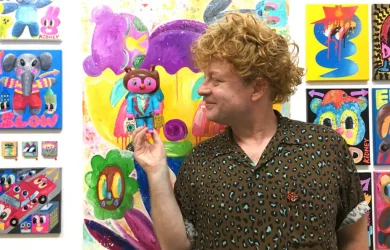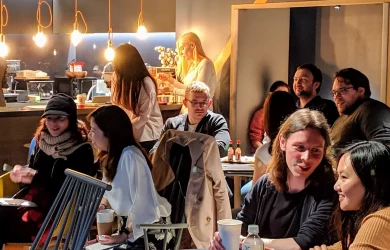
Originally published on metropolis.co.jp on February 2014
Java in Tokyo is much more than big international brands and smoke-filled station shops. In this guide, Metropolis takes a look at some perhaps overlooked aspects of the city’s coffee culture.
Kissaten City
Leave latte art and Wi-Fi behind at these old-school Tokyo coffee shops
By Michael Kleindl

Tokyo beats any other city in the world for its variety and depth of coffee drinking experiences. Of course, the street corners are rife with slick Seattle-based coffee-drink emporiums. And the city boasts world-class baristas who can decorate a café creme with a Pikachu character, a rose or a Valentine heart. But if you want to taste a demitasse brew of 30-year aged Cuban beans, plumb the day-to-day depths of Brazil Santos #2 or compare a Sumatra Mandheling bean prepared through a cotton flannel filter, a paper filter or a glass siphon contraption while listening to Coltrane or Schubert on vintage vinyl records, then it’s time check out Tokyo’s kissaten.

The thing is, kissaten—the old-school Japanese name for coffee shop—are not easy to find. They don’t advertise. They close early, and are often closed on weekends. You’ve got to seek them out as on a pilgrimage.
If you’ve never tried neru-drippu (cotton-flannel filter) coffee, then you are in for a pleasant surprise. The best place to start would be Café de L’Ambre (8-10-15 Ginza, Chuo-ku. Tel: 03-3571 -1551) Tokyo’s mecca for coffee connoisseurs for 60 years. On a quiet side street in Ginza, this laid-back shop roasts its beans everyday 300 grams at a time. Small batches, they say, ensure freshness.
Over 30 types of fragrant beans fill the glass jars on the shelves behind the polished wood counter. Coffee beans, if properly warehoused, will age over decades like fine wine developing nuances of fuller, rounder flavor and aroma. The demitasse is the cup to try.
Another neru temple is Tsuta (5-11-20 Minami Aoyama Minato-ku. Tel: 03-3498-6888). This ivy-covered kissaten, with its large bay window overlooking a Japanese garden, was started over 20 years ago by Koyama-san who learned the basics of roasting and brewing at Café de L’Ambre.
Koyama uses only Brazil Santos #2. One bean is enough for him, he says, because the taste of the coffee changes according to the humidity, the season, the time of day, and even the mood of the customer.
One more neru kissaten worth finding is Café Bechet (2-2-19 Ginza, Chuo-ku. Tel: 03-3564-3176). Named after Sidney Bechet, the jazz clarinetist whose vinyl album covers and black-and-white photos grace the walls, this kissaten offers a respite from the crowds and prices of Ginza with retro jazz and old-school coffee quality. After selecting the bean you prefer, say Mandheling, you can also choose a roasting style, lighter to darker: city roast, full city roast or French roast.
The siphon method, a two-part contraption with a glass globe and detachable upper glass chamber, produces an impeccable cup. Coffee Lodge Dante (13-10-2 Nishi-Ogikubo, Suginami-ku. Tel: 03-3333-1597) is a fine example of this fading, yet still delicious, brewing technique. Dante is also one of the many rustic, old brick and dark wood decorated kissaten from the 1960s and ’70s which still survive across the city. Request a tune from the hundreds of vintage jazz albums crowded into old bookcases.
Holding out for nearly 90 years, Meikyoku Kissa, Lion (2-19-13 Dogenzaka, Shibuya-ku; http://lion.main.jp) serves paper-filtered coffee. But it is also a bastion for the musically pious and a refuge from the sordid world of love hotels outside.
Inside Lion it’s as quiet as a church. Pale, milky sunlight seeps in through glazed windows. Dark wood Doric columns support Moorish arches. Very faded, red plush chairs are neatly arranged below like pews facing the soaring altar of the massive speakers mounted high in a tabernacle and illuminated by electric candelabra and a chandelier. Order a coffee here and worship Bach, Beethoven or Shostakovich.

Near Shibuya station, Chatei Hatou (1-15-19 Shibuya, Shibuya-ku. Tel: 03-3400-9088) has lifted the paper filter brew to an art form. The water is treated and filtered with an ion-alkaline process until it is as pure and tasty as a clear mountain stream. The beans are carefully weighed and ground fresh for each cup. Hatou prefers the Kalita brand filter holder with its three drip holes at the bottom for a faster drain. Other brands have only one drain hole, explained the master, resulting in a more leisurely drain. Such details are essential for the coffee cognoscenti.
The cups at Hatou are of the finest porcelain and hundreds of different designs are on display and seasonal flower arrangements dominate one corner table. Oil paintings in ornate frames hang on the wall alongside modern lithographs. A grandfather clock tick-tocks soothingly beside an armoire displaying antique vases. Hatou is intimate enough for lovers and spacious enough for large thoughts and grand ideas.
At first glance the prices seem exorbitant—¥800 for a cup of coffee, ¥900 for a glass of juice. But if you order a second cup or glass—of anything on the menu—it will cost only ¥500. A modest price to pay for perfection.
